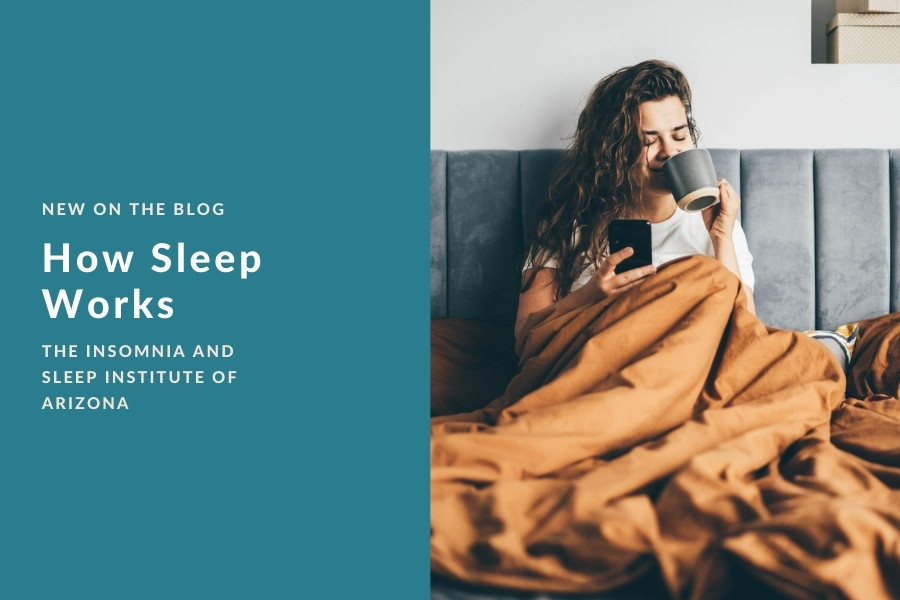Everyone needs sleep, but it can be tricky to get the sleep you need. That’s why at The Insomnia and Sleep Institute of Arizona we have a team of specialists committed to helping you get the sleep you need. Lack of quantity or quality of sleep can stem from many different factors including sleep disorders, mental health, and medical issues. Anyone of any age can struggle with sleep challenges and while the science of sleep is vast, knowing a few statistics can help us see exactly why we’re facing a serious problem in the U.S.
During a so-called “normal” sleep period, we have 4 – 6 sleep cycles and spend around two hours dreaming. REM should make up about 20 – 25 percent of our sleep time. Just over 80 percent of U.S. adults have taken a nap that lasts at least 10 minutes in the past three months with seven percent of adults napping every day. Naps can be effective for some people, but naps over 20 minutes can do more harm than good. According to Sleep Cycle, the average person naps just over one hour—which can cause issues falling and staying asleep at night.
Sleep By Numbers
“Short sleep” is defined as getting less than seven hours of sleep per night, and it’s more common in Black adults compared to their white counterparts. Oversleeping on the other hand, which means sleeping more than nine hours, is also a problem. Those aged 18 – 64 need between 7 – 9 hours of sleep per night on average, and those over the age of 65 might need a little less. Over 33 percent of adults sleep less than seven hours per night, which can be a sign of chronic insomnia. Across the country, Hawaii has the highest rate of adults who sleep less than seven hours at 43.2 percent.
It’s no surprise, then, that nearly half of U.S. working adults say they are “regularly tired” during the day and nearly 70 percent say they are tired when their work is finished. It’s also unsurprising that 42.6 percent of single parents sleep less than seven hours per night (compared to 32.7 percent of adults in two-parent homes and 31 percent in homes without children). There can also be a genetic component to short sleeping, with over half of short-sleepers saying that it runs in their family according to a survey by the Sleep Foundation.
What Informs Sleep
If you live near an airport, you are 23 percent more likely to not get enough sleep. Those who are active duty service members are 34 percent more likely to lack sleep compared to their civilian counterparts. However, not getting enough sleep has repercussions beyond a variety of health concerns and conditions. It is estimated that insufficient sleep is related to an economic impact of over $411 billion per year. Part of this is tied to unplanned absences from work due to insufficient sleep, averaging $44.6 billion per year.
Of course, driving while tired is highly dangerous and is estimated to cause 6,000 fatal crashes every year—with many more non-fatal crashes. It is estimated that up to 70 million U.S. adults have insomnia, a common sleep condition that can cause short sleep. Women are much more likely to have insomnia compared to men, but it’s very likely that if one adult in the house has a sleep disorder another adult does, too. In fact, 76 percent of adults in the U.S. with a sleep disorder share their home with a fellow adult who is challenged by sleep. One of the reasons you may not be able to get the sleep you need is due to snoring, whether it’s a sign of sleep apnea that’s waking you up or your bedmate’s snores. Approximately 20.6 percent of people who snore have been diagnosed with sleep apnea (and many more go undiagnosed).
Getting Diagnosed with Sleep Disorders
The first step in getting the sleep you need is making sure any medical and sleep disorder issue is addressed. This will require a diagnosis by a sleep expert. We require no referral to schedule a consultation with one of our sleep professionals. To get started, contact The Insomnia and Sleep Institute today by calling the clinic during business hours or filling out the online contact form.





